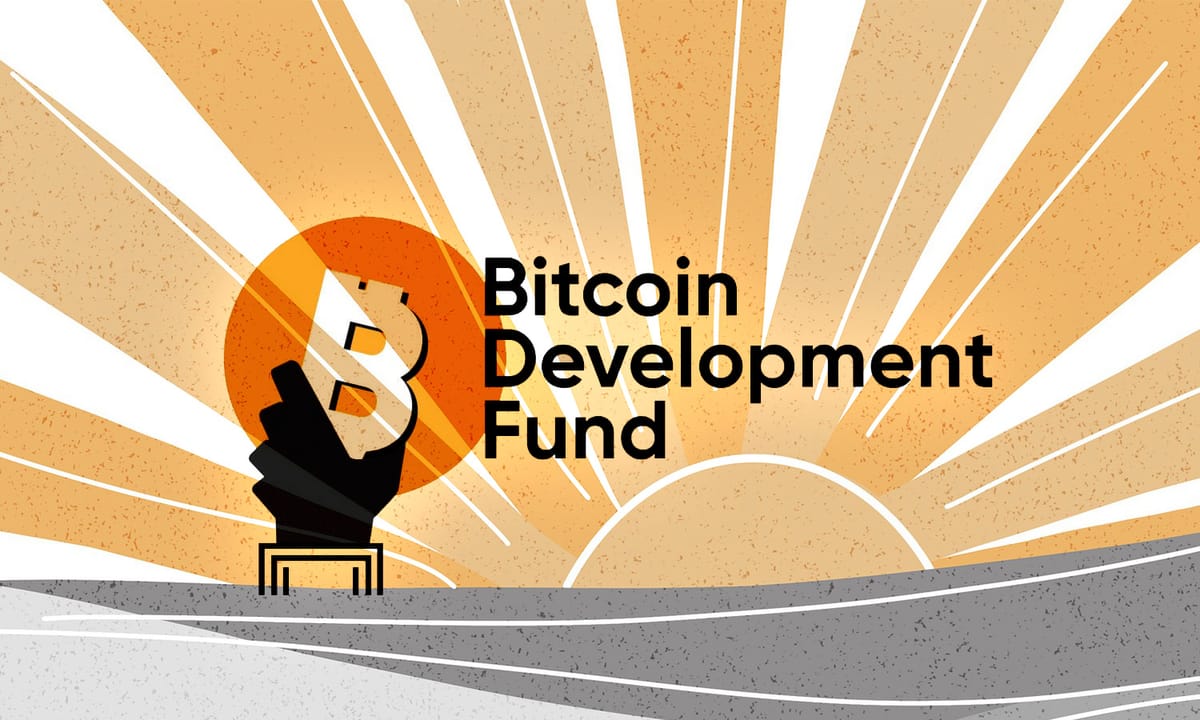Human Rights Foundation Grants 7 BTC to 20 Bitcoin Projects
The Human Rights Foundation (HRF) announced Bitcoin Development Fund grants totaling 7 BTC to 20 global projects.

- These grants support technical education in authoritarian regimes, independent media, decentralized mining, and private financial solutions for human rights groups, focusing on Latin America, Asia, and Africa.
The latest grantees include:
- Stratum V2 Reference Implementation (SRI) is open-source software that decentralizes Bitcoin mining by allowing nodes to create their own block templates. It promotes solo mining, reduces reliance on large pools, and enhances Bitcoin’s censorship resistance.
- Public Pool is a free, open-source mining pool for low-power devices. It lets users self-host Stratum servers and select their own block templates, enhancing Bitcoin’s accessibility and decentralization.
- Naiyoma, Africa’s first female Bitcoin Core developer from Kenya, is dedicated to building an open financial system through reviewing pull requests, fixing bugs, and enhancing Bitcoin Core’s codebase.
- Daniela Brozzoni, an experienced software developer, previously contributed to the Bitcoin Development Kit. She now focuses on Bitcoin Core, reviewing pull requests, adding features, and enhancing tests to improve Bitcoin’s decentralization, privacy, and resilience.
- Michael Haase works to redesign Bitcoin Core’s UX/UI for mobile devices, enabling users to run nodes and access wallet features like Silent Payments and multisignature on their phones. This makes the app more accessible and enhances financial privacy.
- No Bullshit Bitcoin is a free, ad-free newsdesk delivering the latest Bitcoin and open-source technology updates. It focuses on privacy and freedom technologies essential for activists and individuals under authoritarian regimes.
- Tando, co-founded by Sabina Gitau, enables 54 million Kenyans to use Bitcoin for everyday transactions through M-PESA integration. It offers a KYC-free, fee-free Lightning wallet for payments, while merchants receive Kenyan Shillings, providing an affordable and private payment solution.
- YakiHonne is a Nostr protocol client developed by Wendy Ding and her team in East and Southeast Asia. It supports free speech and promotes Bitcoin payments in 170 countries through innovative features and a mix of online and offline events, aiming to drive the adoption of decentralized social media.
- SeedSigner Multi-language Support by Ace aims to add multiple languages to the open-source SeedSigner hardware wallet, enhancing global accessibility and empowering marginalized communities with affordable self-custody.
- Vexl, founded by Lea Petrasova, is a peer-to-peer Bitcoin trading app that offers private, KYC-free transactions by connecting users through phone contacts. It enhances access to private Bitcoin usage and protects against authoritarian regimes.
- Tomatech is an Indian community advancing Bitcoin infrastructure and FOSS projects by building a developer team through mentorship and training. Its Goa-based center hosts meetups, workshops, and residencies to foster a vibrant Bitcoin community.
- Krux is open-source software that transforms generic devices into hardware wallets for secure Bitcoin self-custody and transactions. It offers air-gapped operations, key management, backups, an intuitive interface, and supports 10 languages, helping decentralize Bitcoin custody and protect property rights in authoritarian regimes.
- Iris, developed by Martti Malmi, is a Nostr web client that simplifies and secures private messaging. It utilizes the MIT-licensed nostr-double ratchet library to protect metadata and message content, ensuring conversations remain private, especially in surveilled environments.
- African UX Bitcoin Bootcamp empowers Bitcoin UX designers from authoritarian countries to attend the Africa Bitcoin Conference for hands-on training and networking.
- Bitcoin History research project by Pete Rizzo that documents and preserves key people, events, and materials shaping Bitcoin’s rise as a global monetary and human rights force.
- Cashu-ts, developed by Gandlaf21, is Cashu's primary SDK that streamlines wallet creation, integrates the latest protocol updates, and powers wallets like Minibits, eNuts, and Nutstash. It enables the development of secure, privacy-focused digital cash wallets, advancing the Cashu ecosystem and enhancing financial privacy.
- Unify, developed by Fontaine, is a Payjoin wallet built with Nostr and Bitcoin Core. It enhances Bitcoin privacy by enabling collaborative payments that obscure transaction histories.
- The Financial Freedom Policy Coalition, founded by Venezuelan activist Jorge Jraissati. It unites youth leaders, policymakers, and experts to promote economic opportunities for those living under authoritarian regimes.
- Jon Atack, a leading Bitcoin Core contributor and BIP editor, instrumental in enhancing Bitcoin’s decentralization and robustness.
- Brink, co-founded by Mike Schmidt, strengthens the Bitcoin protocol through research and development. It provides grants to Bitcoin protocol engineers and offers training and mentorship to onboard new open-source contributors.
"We're immensely grateful and humbled to receive this much-needed support from the HRF's Bitcoin Development Fund. A huge thank you to everyone on the HRF's Financial Freedom team, as well as all the contributors to the Bitcoin Development Fund. This support will help us continue our operations, enhance our coverage and website, and bring you the latest in Bitcoin and freedom technologies." - No Bullshit Bitcoin team.
The HRF is a nonprofit 501(c)(3) organization that promotes global human rights, particularly in closed societies. It supports the Bitcoin Development Fund and accepts donations that are tax-deductible to the full extent of the law. Grant applications can be submitted here.
Bitcoin Magazine Article / Archive
- Do you want more? Subscribe and get No Bullshit GM report straight to your mailbox.
- Follow No Bullshit Bitcoin on Nostr.
- Feedback or news tips? Drop it here.




